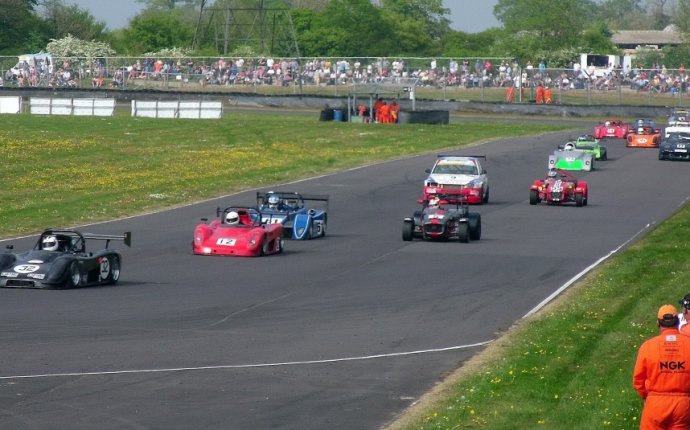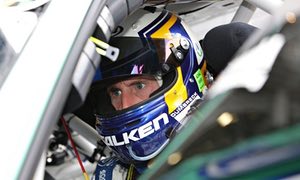
Become Race Car Driver
 Peter Dumbreck didn't start earning any money from the sport until five years after he got his racing licence.
Peter Dumbreck didn't start earning any money from the sport until five years after he got his racing licence.
It's a long and expensive road to becoming a professional – and dangerous too. It will be years before you make any money
For a man whose Mercedes took off into the air and did a quintuple somersault during Le Mans, Peter Dumbreck comes across as remarkably grounded. But then, he says, you have to be, if you want to succeed as a racing car driver. "You need to be able to live for the moment, " he says. "Do the best that you can do. If you make it, you make it. And if you don't, you don't. The most important thing is to be pleased with your performance."
Surprisingly, Dumbreck never dreamed of becoming a racing car driver when he was growing up. "My parents had a mushroom farm in Scotland, so I always thought I might become a mushroom farmer one day. My only ambition was to have fun." He started driving when he was nine years old. "I had my own car to drive around the fields with. In fact, I had a series of cars, because I kept wrecking them and smashing them up."
This must have been good practice for go-karting – which Dumbreck took up at 10 years old – because, soon after he got behind the wheel, he started winning races. "Karting teaches you the race craft; 95% of racing car drivers start out by karting. You learn about the basics of kart control, like understeering and oversteering and how to adapt the kart to the race track to make it fast. And, just like in motor racing, you need to be super-competitive to win – I know I am."
A friend spotted Dumbreck's talent and, when he was 17, lent him a better racing kart, which enabled him to win at every kart track in Scotland. "At that point, I thought: 'Actually I am quite good at this, I have the potential to make something of myself here.' But you can't make a career out of karting – I had to start racing cars."
So, at the age of 18, Dumbreck asked his elder brother to pay for him to attend a week-long, £3, 000 course at the Jim Russell Racing School so he could get a motor racing licence. "Silverstone is the best racing school now. Up and coming or former racing drivers sit on the corners, watching your lines, watching how you brake. They give you feedback and then you try to improve. After my course – which was where I had my first taste of a racing car – I went on to win every motor race I did that year."
But to keep racing cars, he needed money. "So much in racing is down to the equipment and raising the money you need to race for a season is the biggest challenge for anyone who wants a career in motor racing. It can cost tens of thousands starting out and millions as you get closer to the Formula One dream. The only way you get to drive in a championship for free is if you get recognised in the sport." If a team with less talented – but wealthier – drivers think you'll win the championship the following year, they might be willing to pay for you to join them.
After the racing school championship, Dumbreck ploughed a £30, 000 inheritance from his grandparents into funding his next year of racing. "I did the British Formula Vauxhall Junior championship that year and won it. But every penny I had or could get was gone. I was winning, but I didn't know what to do next."
The luckiest break of his career was when the former Formula One racing champion Jackie Stewart picked Dumbreck to drive in his Vauxhall Championship and Formula Three teams for free. "Making the transition from paying money to drive to getting to drive for free in Formula Three is a big step up for any driver. The Formula One teams are looking at you."
Dumbreck continued to win championships but it was only in 1998, five years after he got his racing licence, that he started earning any money from the sport – plus, at the end of the season, he became a factory driver for Mercedes-Benz. They paid him roughly £40, 000 for a single race.









